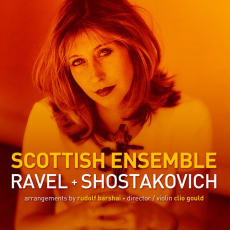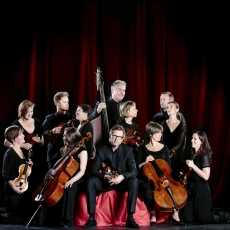Scottish Ensemble - Ravel and Shostakovich - Gramophone
Readers averse to the string quartet medium would do well to familiarize themselves with Shostakovich's 'Op 118a'. The parent work, The Tenth String Quartet from 1964, is one of the strongest chamber pieces of the last 60 years. It was dedicated to the composer Moshei Vaimberg and its middle movements suggest coded compassion, the second a relentless Allegretto furioso full of swingeing dissonances, the third a noble passacaglia cast as an Adagio and strongly reminiscent of the parallel movement in the First Violin Concerto. Rudolph Barshai's arrangement centres on nuance, shifting perspectives, expressive interplay between solo and tutti (the lead violin taking a solo for the Adagio) and of course drama. The Scottish Ensemble do brilliantly on the first three counts, colour-conscious and always sensitive to the music's changing hues, but anyone familiar with, say, either of the Borodin's Russian recordings of the original will probably find the Allegretto furioso a little tame. It's certainly slower than the Borodins which does at least mean that some of Shostakovich's more queasy chord writing stands to gain through extra emphasis. On the other hand the profoundly ambiguous Allegretto finale is perfectly paced.
Barshai's filled-out Ravel's Quartet is just bas remarkable, especially in this performance where Clio Gould and her players relate a wide variety of tone and timbre without losing sight (or should I say sound) of the works quartet origins. The resulting Petite Symphonie emerges as both chamber music and chamber symphony, intimate where needs to be (the middle movements come off particularly well) but with the added appeal of a skilfully employed small-orchestral sonority. Fluidity of line and transparent textures are crucial attributes while Ravel's sensual and intensely personal idiom is never compromised. The sound is excellent, the playing consistently sympathetic. A good stimulating listen.

